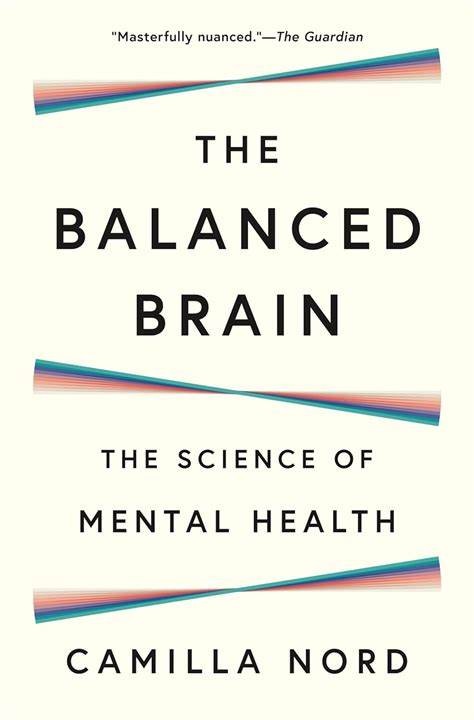Mental Health & Neurology
Artificial Intelligence & Emerging Technologies
Brain Mechanisms & Psychology
Mental Disorders, Anxiety & Depression
Post-Doctoral Fellowships
United Kingdom
2021.01.03
A neurocomputational framework for mental health maintenance
Towards More Efficient Mental Health Therapy
What do effective mental health treatments actually do? There is a pressing need to better understand the mechanisms of cognitive therapy. How humans regulate and maintain their mental state is a key aspect of successful psychological interventions.
Dr Nord’s AXA Fellowship funded a new line of research investigating the underlying brain processes causing good mental health—and why psychological therapy might help.
In one major line of work, her lab focused on psychological distancing, a key component of most emotion regulation-focused therapies like cognitive behavioral therapy or mindfulness. For a sample of 995 participants, UK census-matched for age, sex, and history of psychiatric diagnosis it combined cognitive distancing with a reinforcement learning task and algorithm, to reveal the cognitive mechanisms of therapy.
Dr Nord’s lab discovered that cognitive distancing improved people’s ability to learn—they showed better decision-making accuracy on the reinforcement learning task, especially when the decisions were difficult. Computational modelling revealed that this accuracy was driven by increased sensitivity to negative feedback: faster learning about their own ‘incorrect’ choices. This may represent an ‘active ingredient’ of psychological therapy—why it works: by promoting adaptive learning from negative outcomes, helping us engage more effectively with negative events, to make better decisions in the future.
This work has been presented at many conferences and meetings in the UK and worldwide (US, Switzerland, Australia, Korea, and others), and you can read more about it in their key paper published in Psychological Medicine, or in Dr Nord’s popular science book, The Balanced Brain: The Science of Mental Health, named a 2023 ‘Book of the Year’ for the Financial Times and The Sunday Times, and now translated into eight languages.
Dr Nord’s discovery could be used to improve our ability to treat mental health conditions in future: Dr Nord’s lab is now working on ‘acute augmentations’ for psychological therapy, ways to enhance the biological mechanisms driving therapy’s effectiveness, such as medication or brain stimulation delivered during a therapy sessions (Nord et al., 2023 Nature Mental Health). This work is funded by grants awarded following the AXA Fellowship (Wellcome Career Development Award, £1.5million; Wellcome Mental Health Award, £4.5million).
Dr Nord’s lab has also begun to look outside the brain for new mechanisms supporting mental health, in particular body-brain interactions such as the circadian rhythm (supported by her AXA Fellowship) and gut-brain interactions (supported by the UK Medical Research Council).
To learn more from Dr. Nord, check out her public articles, books, public talks, or YouTube videos.
Popular science writing includes “There’s a Reason They’re Called Gut Feelings” (TIME Magazine), “Can what you eat change your mind” (The Guardian), “I want to know what is causing the TikTok tic—and whether we should be worried” (The Independent), “Why People Get Hangry…and what it can teach us about our overall mental health”, Psychology Today, “The Brain’s Reading of the Body’s State is Key to Mental Health” (Aeon), “The mind-body problem” IAI News
Book "The Balanced Brain: The Science of Mental Health" (Penguin, 2023) – named A Sunday Times, Financial Times, and Prospect Book of the Year
Public talks include: the Royal Institution (viewed 3.8M times on TikTok and 100k times on YouTube), the FT Weekend Oxford Literary Festival, the Norfolk Science Festival, the Cambridge Literary Festival, Cambridge Science Festival, Harvard Library Talks (US), Politics and Prose (US), The Trouble Club, HowTheLightGetsIn, How to Academy (>4000 attendees), New Scientist Festival, Kensington & Chelsea Science Festival, British Science Association.
Radio includes: BBC Radio 5 with Naga Munchetty, BBC Radio 4 File on 4 – Long Covid: Mind Over Matter? BBC Radio Berkshire, NPR Science Friday (US) – How Your Brain Constructs Your Mental Health, BBC Naked Scientists – How Do Addictions Start?, U2 X-Radio with John Kelly (Ireland), 980 CKNW (Canada), KERA FM (US)
Print media coverage includes: Features in Sunday Times – The Brain Scientist Who Wants to Zap Away Your Depression, New Scientist – A Personalised Approach to Mental Health, Independent – The Brain Scientist Who Wants to Cure Your Depression. Interviews in Wired, New Scientist, Kathimeri (Greek), New Statesman, TechCrunch, Sky News, various books (‘Losing Eden’ (Lucy Jones, Penguin); ‘What Mental Health Really is’ (Lucy Foulkes, Penguin); We Are Electric (Sally Adee, Canongate); coverage in numerous outlets including the Daily Mail, the Economist, Wall Street Journal, The Times, The Guardian/Observer.
YouTube includes Royal Institution: The New Science of Mental Health, Harvard Science Book Talks
Scientific publications
Mehrhof SZ, Nord CL. (2024) A common alteration in effort-based decision-making in apathy, anhedonia, and late circadian rhythm. eLife https://doi.org/10.7554/eLife.96803.3
Smith A, Bisby J, Dercon Q, Bevan A, Dalgleish T, Hitchcock C, Nord CL. (2024) Hot metacognition: poorer metacognitive efficiency following acute but not traumatic stress. Translational Psychiatry (2024) 14, 133. https://doi.org/10.1038/s41398-024-02840-z
Dercon Q*, Mehrhof SZ*, Sandhu T, Hitchcock C, Lawson RP, Pizzagalli DA, Dalgleish T, Nord CL. (2024) A core component of psychological therapy causes adaptive changes in computational learning mechanisms. Psychological Medicine (2024) 1-11. https://doi.org/10.1017/S0033291723001587
Nord, CL, Longley, B, Dercon, Q, Phillips, V , Funk, J, Gormley, S, Knight, R , Smith, AJ, Dalgleish, T. (2023) A transdiagnostic meta-analysis of acute augmentations to psychological therapy. Nature Mental Health 1, 389-401. https://doi.org/10.1038/s44220-023-00048-6
Nord CL & Garfinkel S. (2022) Interoceptive pathways to mental health treatment. Trends In Cognitive Sciences. 26:6, 499-513. https://doi.org/10.1016/j.tics.2022.03.004
Dalmaijer ES, Nord CL, Astle DE. (2022) Statistical power for cluster analysis in multivariate normal distribution. BMC Bioinformatics 23: 205. https://doi.org/10.1186/s12859-022-04675-1


Camilla
NORD
Institution
University of Cambridge
Country
United Kingdom
Nationality
Dutch
Related articles
Mental Health & Neurology
Extreme Weather Events
Pollution
Alzheimer's Disease, Dementia & Neurodegenerative Diseases
Droughts & Heatwaves
Air Quality
Mécénat des Mutuelle
France
CLIMABRAIN: Impacts of Extreme Weather on the Most Vulnerable Living with Alzheimer's disease
In the context of the increase in extreme weather events due to climate change, the project led by Tarik Benmarhnia... Read more

Tarik
BENMARHNIA

